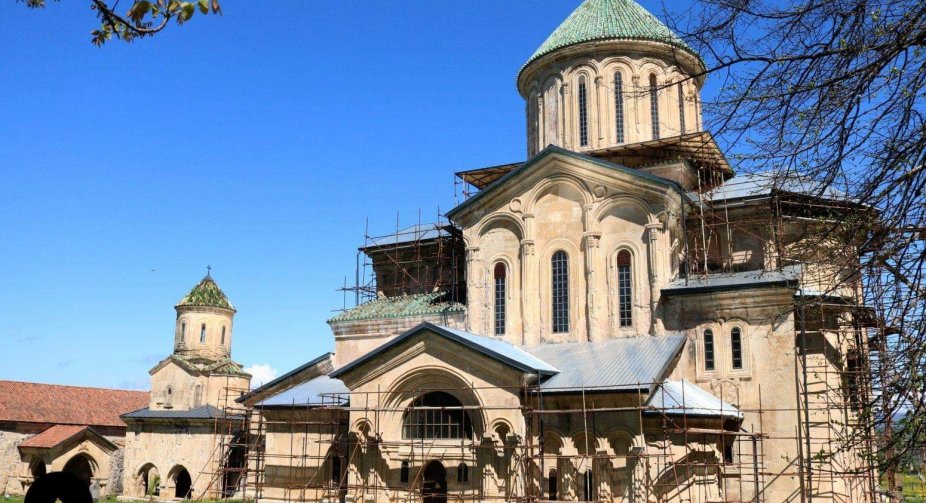The Georgian patriarchate on Wednesday responded to recent controversies over the report by the National Research Centre for Georgian Art History and Heritage Preservation on the Gelati UNESCO site in western Georgia.
The report released last week and presented at the Lelo opposition party office on Tuesday, criticized the preservation work in the site launched by the country’s culture ministry, under minister Thea Tsulukiani in 2021, claiming decisions were being made by “non-professionals”, with problems remained “unresolved”.
In response, the ministry claimed a group of “politically biased” scientists, who “dislike” the minister, had drafted the document without the engagement of domestic and foreign experts, pointing to “superficial conclusions by non professionals”.
The body also said the head of the centre was unaware of the document and the report was not approved by her.
The patriarchate said the report was drafted by its request and there was “no politics here, but it is conditioned by the protection of the monument and the best interests”.
“Along with the conclusions of many foreign specialists, we considered it necessary to present his scientific evaluation and professional conclusion to the center named after Giorgi Chubinashvili, which historically, to this date has done important work in terms of studying and popularizing our national culture”, said the patriarchate.
It also rejected the claims by the ministry that the report was made privately and it had no legal legitimacy as “ not true”, stressing the report was approved by the centre director Mariam Gachechiladze.
